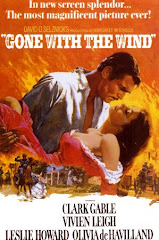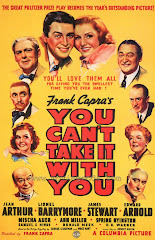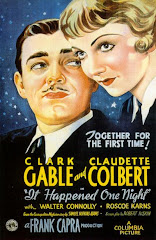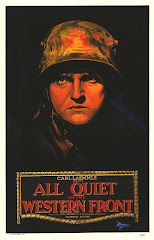Director: Harry Beaumont
Cast: Anita Page, Bessie Love, J. Emmett Beck, Nacio Herb Brown, James Burrows, Ray Cooke, Drew Demorest, Charles King
Genre: Musical
Other Nominees: Alibi, Hollywood Revue, In Old Arizona, The Patriot
It was unfair for me to have my expectations so very low going into this movie. I guess I expected a low standard of movie making, maybe thinking that back then they did not take making films as seriously as they do today. But those thoughts evaporated after the credits as the opening shot of the film was a spectacular aerial view of New York City and of a bustling 1929 Broadway.
And Broadway is what this movie is all about. It is a place where, as he theme song sings, "a million lights they flicker there, and a million hearts they beat quicker there". After the horrors of World War I a decade before and with a Great Depression looming it appears that people needed an escape from reality. Broadway was an ultimate escape and was booming! Apparently in 1927 there were 268 different performances playing in New York City compared to 50 or so throughout the 1970's.
Amazingly, The Broadway Melody of 1929 was the first academy award winner to have sound. Considering the popularity of Broadway at the time it makes sense that the first winner with sound is a musical that is set there. I cannot imagine how amazing it must have been to sit in a theatre and hear what you are seeing on screen for the first time. The tunes are snappy and tell us all about the grand ol' time that everyone has when working on Broadway. But the story is really about the darker side of the street.
It was a time when acts from all over the country arrived by bus and train loads to find fame and fortune in New York City. This was the story of the Mahoney sisters who arrived to get their names written in lights and "get a flash with Babe Ruth". What surprised me about this film was the air of desperation that permeated the storyline. At one point the sisters rely less on their talent and more on their looks, bemoaning that they "never had to get by on their legs before!"
Things go from bad to worse when the better looking of the sisters then falls in with a seedy millionaire who promises her an apartment on Park Avenue, a Rolls Royce, and diamonds galore in exchange for her sleeping with him. The film never gets too graphic about this but you can read between the lines.
Perhaps the 1920's was not a time for happy endings. The sisters both avoid the major pitfalls that the underworld of Broadway has to offer but the ending is far from happy as both struggle with their disillusionment. I imagine that the real Broadway offered just as much disappointment to thousands upon thousands to young people.
Next Up: All Quiet On The Western Front
Subscribe to:
Post Comments (Atom)



















































Nice review. I didn't realize it was the first Oscar given to a movie with sound! I love little facts like that!
ReplyDeleteKeep it up!
I love seeing films from early in the sound era - I'm pretty sure the first musical ever produced was called Love Parade, directed by Ernst Lubitsch - he was the king of musicals!
ReplyDelete@Ruth I'll try to check that one out someday.
ReplyDelete